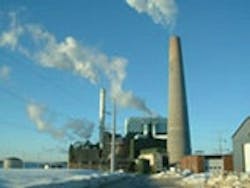BP Allowed to Dump More Sludge Into Lake Michigan
The BP oil refinery in Whiting, Ind., will now be allowed to dump more ammonia and industrial sludge into Lake Michigan.
Indiana regulators have made BP exempt from state environmental laws in order to clear the way for a $3.8 billion expansion that will allow the company to refine heavier Canadian crude oil. The expansion was approved because it will created about 80 new jobs.
According to Chicago Tribune BP's new state water permit will allow the refinery to release 54% more ammonia and 35% more sludge into Lake Michigan each day. Ammonia leads to algae blooms that kill fish, while sludge contains a heavy concentration of heavy metals. BP has already been noted as one of the largest polluters along the Great Lakes.
Despite the added dumping, the refinery will still meet federal water pollution guidelines. However, federal and state officials have noted that this is the first time in years that a company has been allowed to dump more toxic waste into Lake Michigan.
Chicago Tribune reports that BP is investing heavily in Canadian crude oil to reduce its reliance Middle East sources. Extracting petroleum from crude oil is a dirty process and requires more energy that could significantly increase gaseous emissions.
Environmental groups and neighbors have asked BP to install more effective pollution controls at the refinery, which is the fourth-largest in the nation.
BP will now be allowed to dump an average of 1,584 pounds of ammonia and 4,925 pounds of sludge into Lake Michigan every day. The additional sludge reaches the maximum allowed under federal guidelines.
Paul Higginbotham, chief of the water permits section at the Indiana Department of Environmental Management, told the Chicago Tribune that BP had wanted permission to pump twice as much ammonia into the lake. In the end, the state allowed more than the company is currently discharging, but less than the federal or state limits allow.
In order to avoid the Clean Water Act rule that prohibits a downgrade in water quality near a pollution source even if discharge limits are met, state regulators are allowing BP to install equipment that mixes its toxic waste with clean lake water. Usually, this kind of mixing zone has been band in Lake Michigan under an Indiana law. This instance is the first-ever exemption.
Actively diluting pollution this way by creating what is known as a mixing zone is banned in Lake Michigan under Indiana law. Regulators granted BP the first-ever exemption.
The U.S. Environmental Protection Agency has been moving forward on efforts to eliminate mixing zones around the Great Lakes, but officials did not object to Indiana's decision regarding BP.
Source: Chicago Tribune
